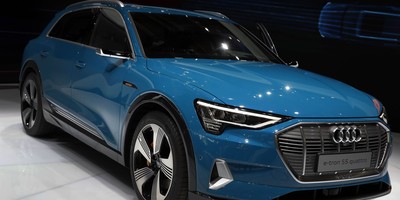INDEPENDENCE, Mo. – In front of the remarkably preserved home of President Harry Truman in Independence, Mo., a young National Park Service tour guide suggests that if you want “great boots at a good price, and to be treated like family,” you must head out U.S. 24 to Higginsville.
Due east, the highway gives way to 44 miles of farms along rolling prairies crossed occasionally by county roads and Missouri River tributaries.
In 1926 when routes were given names, not numbers, this 1,500-mile east-west highway was named Telegraph Road, for the wires paralleling it.
Jeanette Dobson was born and raised here in what residents like to call “the Heartland of the Midwest.” She has worked at city hall “since I was 18. I married a farmer. I knew I wasn’t going to leave.” Nor did she want to.
Dobson sees the effects of the recession here but, she says, people in places like Higginsville always adapt and carry on.
She pays only peripheral attention to what’s going on politically on the national level; she says she always votes but never along party lines. When she votes this year, she won’t go for some slick narrative but “will vote for what is best for my family and for my community.”
When voters walk into their precincts in 20-odd days for the midterm election, they won’t think about “saving” Democrats or “helping” Republicans. They will think about themselves.
It’s a phenomenon that President Obama has failed to understand, that his strategists cannot wrap their arms around – and that Republican leaders better school themselves in immediately.
Recommended
As one unabashed liberal says: “When the Democrats took over in 2008 in the midst of the worst economic crisis in our lifetime, I just knew they would … show everyone they knew what they were doing. Two years later, I couldn’t have been more disappointed or more wrong.”
Billboards for Kleinschmidts’ Western Wear line Interstate 70 for miles in both directions. Yet personal endorsements, such as the one given by the park service guide, bring more people to the store.
“Our best advertisement is our people who work here,” says Tim Short, husband of Charlene Kleinschmidts, whose father started the store 35 years ago.
Kleinschmidts is western-boot heaven; 25,000 sizes, shapes and colors line its walls. It was located first in the small town of Corder, about five miles east of here, then on Higginsville’s main street; 20 years ago, the family business grew to its present location along the interstate.
Short says that when he saw the economic crisis hitting, he knew he had only one way to handle it. “We just tried to keep on doing what we were doing, treating people well, offering quality goods, and staying within our means.”
As with Dobson, his vote in November will depend on how it affects his pocketbook and his community.
Last week, Gallup's first generic ballot estimate of likely voters showed Republicans leading Democrats, 53 percent to 40 percent, in a high-turnout scenario and 56-38 in a low-turnout scenario. Staggering numbers for Democrats.
Not since the financial panic of 1893, during President Grover Cleveland's midterm year, has the potential for such a huge political shift hovered on the horizon. Back then, Democrats went from holding 218 of 356 seats in Congress to 93 of 357 seats.
Main Street Americans such as Dobson and Short waited to see what the Obama administration and Democrats would do about the economy, yet all they saw were hyper-partisan politics over legislation that could have waited until the economic crisis abated or the jobs returned.
Carnegie Mellon University economist Allan Meltzer says the jobs problem was fumbled across the board, beginning with allowing one party – Democrats – to choose the spending allocation of the original stimulus bill: “It is well known that temporary tax cuts have little effect. A permanent tax cut would have been more effective.”
Meltzer says businessmen who want to invest more in their companies haven’t because they are uncertain about tax rates, health costs, energy costs and regulation.
Or, as Kleinschmidts’ Short says, you don’t double your stock when you don’t know what’s coming next.
A hundred miles to the east in Jefferson City, Mo., Vice President Joe Biden recently came to town, not for public appearances but for a fundraiser. Perhaps wary of yet another video showing Biden telling Democrats to “buck-up” or that they are “the dullest audience I’ve ever spoken to,” his staff would not allow news cameras into the event.
No billboard creates a better sign of the times for Democrats.

























Join the conversation as a VIP Member